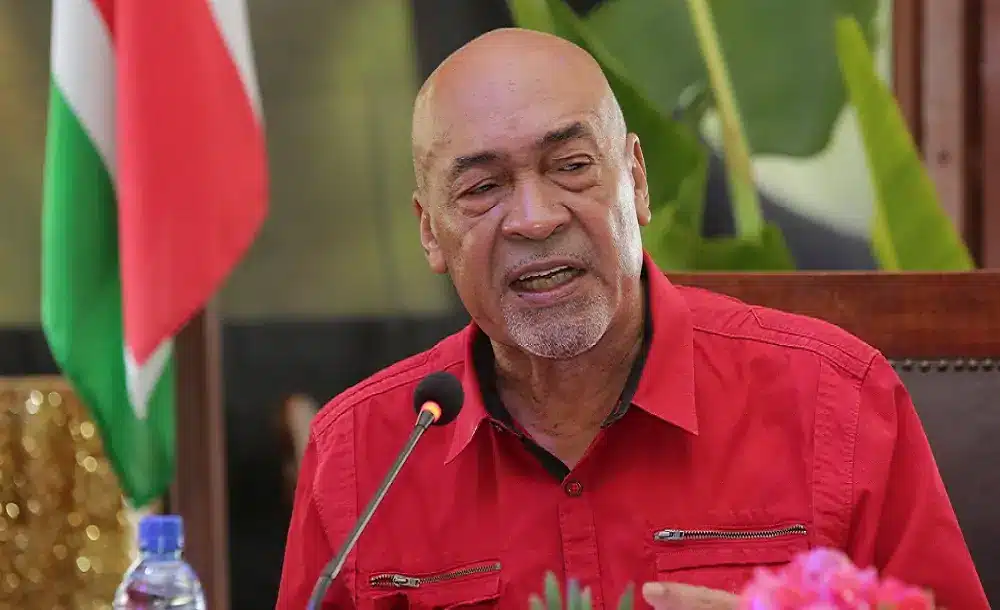Desi Bouterse, the former dictator and later elected president of Suriname, has died at the age of 79. His death was confirmed by the Surinamese government, which stated that he passed away on December 24, 2024, after a brief illness while in hiding. Bouterse’s legacy is marked by his controversial rule, which included a military coup, allegations of extrajudicial killings, and a conviction for drug trafficking.
Key Takeaways
- Desi Bouterse died at 79, confirmed by the Surinamese government.
- He was a controversial figure, known for his military coup in 1980 and subsequent political career.
- Bouterse was convicted in absentia for the 1982 murders of 15 political opponents.
- His death has sparked mixed reactions, reflecting his divisive legacy in Suriname.
A Complex Legacy
Bouterse’s political career began with a coup on February 25, 1980, when he seized power as a young sergeant major in the army. He initially garnered support for his populist policies, which included universal school meals and free healthcare. However, his rule was marred by allegations of human rights abuses, including the infamous December Murders of 1982, where 15 political opponents were executed.
After stepping down in 1987 under international pressure, Bouterse returned to power in 1990 through another coup. He was elected president in 2010 and ruled until 2020, during which time he faced numerous legal challenges, including a conviction for drug trafficking in the Netherlands.
Legal Troubles and Convictions
Bouterse’s legal troubles began long before his death. In 1999, he was sentenced in absentia to 11 years in prison for cocaine trafficking. His political status shielded him from extradition, allowing him to evade justice for years.
In December 2023, he was convicted for the 1982 murders and sentenced to 20 years in prison. However, he never served his sentence, as he had gone into hiding to avoid arrest. His conviction was seen as a significant moment in Suriname’s legal history, marking the first time a former head of state was held accountable for such crimes.
Reactions to His Death
The announcement of Bouterse’s death has elicited a range of reactions. Current President Chan Santokhi expressed condolences to Bouterse’s family and called for calm among the populace. Many supporters gathered outside his home in Paramaribo, mourning the loss of a leader they viewed as a champion of the poor and working class.
Conversely, opponents of Bouterse’s regime have reiterated their condemnation of his actions during his rule, emphasizing the need for justice for the victims of his government.
Desi Bouterse’s death marks the end of an era in Suriname’s tumultuous political history. His life and career remain a subject of debate, reflecting the complexities of leadership in a post-colonial context. As Suriname moves forward, the legacy of Bouterse will undoubtedly continue to influence the nation’s political landscape.


